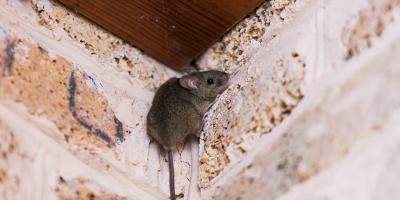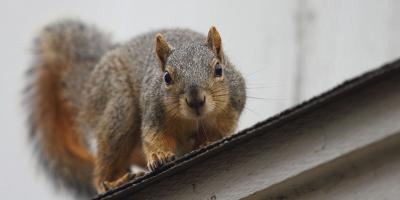Why You’ll Never See Cheese in Our Mouse Traps

As a kid, you didn’t have to watch too many Saturday morning cartoons to know that a mouse’s favorite food is cheese, right? Unfortunately, however, Tom & Jerry is more entertaining than informative. Turns out, mice don’t particularly care for cheese and actually prefer sweeter snacks, and the holiday season features sweet treats a-plenty.
A Sugar-Coated Season
That’s not to say they’ll refuse cheese if it’s available -- mice are neither so rude nor so picky. Mice will eat just about anything with at least some degree of nutritional value, which includes cheese. That’s why cheese is just about the last food you’d want to use on a mousetrap -- because it’ll be the last thing they try to eat after exhausting every other available food source. You’d have much better luck using fruits or grains, if you’re trying to lure a mouse into a trap.
With the holidays approaching you might have two of their top high-sugar snacks on hand: chocolate and gum drops. If you’d rather not share and before you go grocery shopping for other mice snacks, you need to know that’s not how pest control pros trap mice -- or, for that matter, any other pests.
In fact, when it comes to controlling mice, there are far more variables than you probably realize that go into deciding what kinds of traps and lures to use, all of which are important for effective rodent control.
Plus, you can trap mice all year long -- and might have to -- if you don’t also take measures to stop mice from getting into your home in the first place. That’s a process called “exclusion” and it’s where pest control professionals really shine.
Embrace the Art of Exclusion
You see, rodent control is all about staying one step ahead of your furry foes, and that means learning to think like a mouse. The only way to do that is to understand how mice act, how they communicate with each other and, yes, knowing what they like to eat.
For example, it’s important to be aware that mice are quite curious. That means if you set traps and a few days go by without catching anything, your traps are probably in the wrong place -- especially since mice are known to run the same routes over and over again.
Consistency is also important, as mice will always be trying to claw their way into homes and businesses, especially in the colder months. That’s especially true here in New England, where older homes and other structures are particularly susceptible to “settling,” which can open up new holes and gaps for rodents to use as an entrance.
Mice can squeeze through spaces as small as a dime, so regularly checking for new potential entry points (and sealing them up quickly) is key to proactive rodent management. This is expert “exclusion” and it helps to have a dedicated pest control professional who can spot problems far faster than the rest of us.
In fact, whenever there’s a risk of structural damage with regard to a particular pest, it’s important to call in the professionals, and mice are no exception.
Whether you have an existing rodent issue or you are simply looking to make sure they stay out of the house, contact us today for a free quote.



